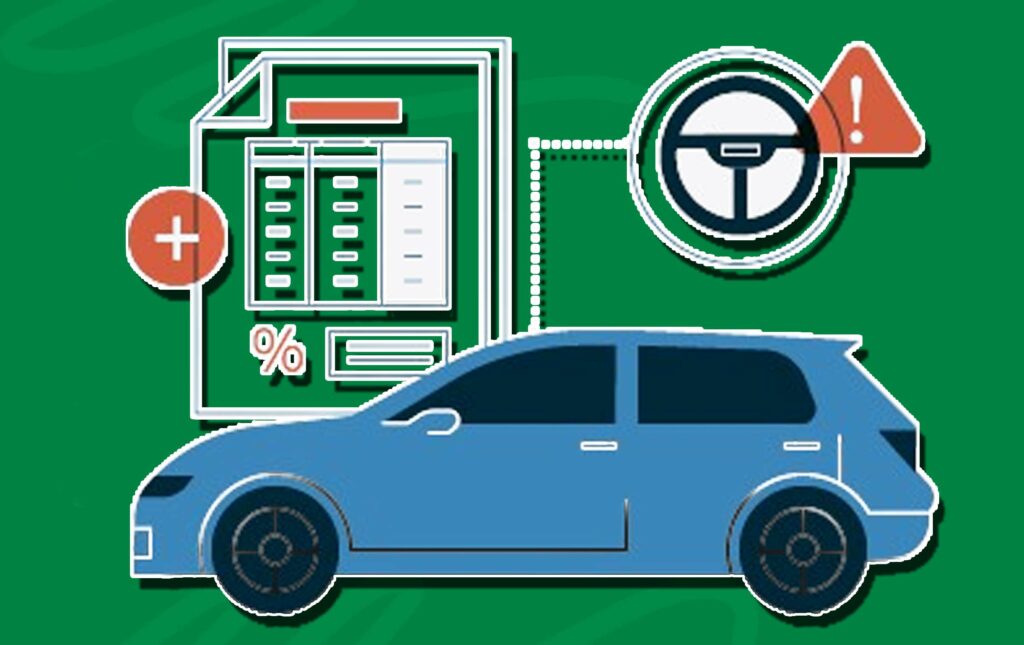Every driver may already know that their driving record has an impact on their insurance premiums. Insurance companies generally consider different factors, including license points, when determining your insurance premiums and rates. But how do points on your license affect car insurance?

Most states use driver’s license point systems to identify violations, while insurance companies use these points to determine insurance rates. It is possible that points on your license can affect your car insurance. It is important to know how points on your driver’s license affect your car insurance. Aside from age, gender, driving record, and other factors, license points can also affect your insurance.
There are different ways points can affect your car insurance premiums and rates. It may lead to higher premiums and rates, making insurance quite costly for policyholders. It may also cause your insurance company to consider you a high risk, which leads to higher rates. This write-up contains all the insights you need to know about how your car insurance is affected by points on your license.
What are Driver’s License Points?
As previously stated, most states use driver’s license point systems to track driving violations and check out the severity of different events. Drivers may get points on their driver’s license after getting a speeding ticket or other violations such as running a red traffic light.
Your license may be suspended in most states if you get a specific number of points on your license. The number of points drivers can get on their license varies by state. Any driver who exceeds these numbers will face certain penalties. However, every moving violation has several points added to your license.
How Do Points on Your License Affect Car Insurance Rates?
Insurance companies review your driving record when evaluating insurance rates. When checking your driving records, insurance companies pay more attention to points on your license. Insurers generally charge higher rates for events that may also get you points on your driver’s license. These events that may earn you points include reckless driving, speeding, driving under the influence of drugs, and distracted driving.
Insurance points are the system used by insurers to trace driving records and are more effective than a simple point system. These points vary by insurance companies. Some insurance companies increase insurance rates at renewal for drivers who recently get points for speeding, while others may have much higher rates for drivers who text and drive.
However, some states do not make use of driver’s license point systems; drivers may likely see a surcharge after a renewal of insurance policies for driving violations. Also, having points on your license can impact your car insurance rates if you decide to switch insurers or purchase a new car insurance policy.
Can I Prevent Points on My License From Affecting My Car Insurance?
Every state has different laws concerning license points. You may be able to prevent license points from affecting your car insurance by getting rid of them on time. Over time, these points may fall off, and you may be able to get rid of them by attending traffic school or taking an approved defensive driving course.
Drivers who have points on their license may consider checking policies around the removal of points with their state’s Department of Motor Vehicles. While it is possible to get rid of points, your violations will remain on your driving record. It is a good idea to remove these points on your license, but car insurance companies will still review violations related to these points.
How Can I Reduce the Effect of Car Insurance Rates Due to Points on Your License?
If your car insurance rates increase due to points on your driver’s license, there are several ways you can reduce them. The following are some ways you can reduce your insurance rates caused by points.
Take a Driving Class:
Most car insurance companies offer discounts for drivers taking an approved defensive driving or driver’s education course.
Take Advantage of Other Discounts:
Car insurance companies offer quite a few discounts for eligible drivers. Selecting a car insurer that has multiple discounts is a good way to save on insurance premiums. Some of these discounts include paid-in-full, bundling, and good student discounts.
Check Around for New Policies:
If you have tried everything you can with your current insurer to reduce your insurance rates, but it’s not working out, you can consider searching for a new car insurance company for policies preferable for you.
Improve Your Credit:
The use of credit to determine insurance rates is not approved in most states. In states that allow the use of credit, it is a good idea to work on your credit to reduce rates.



